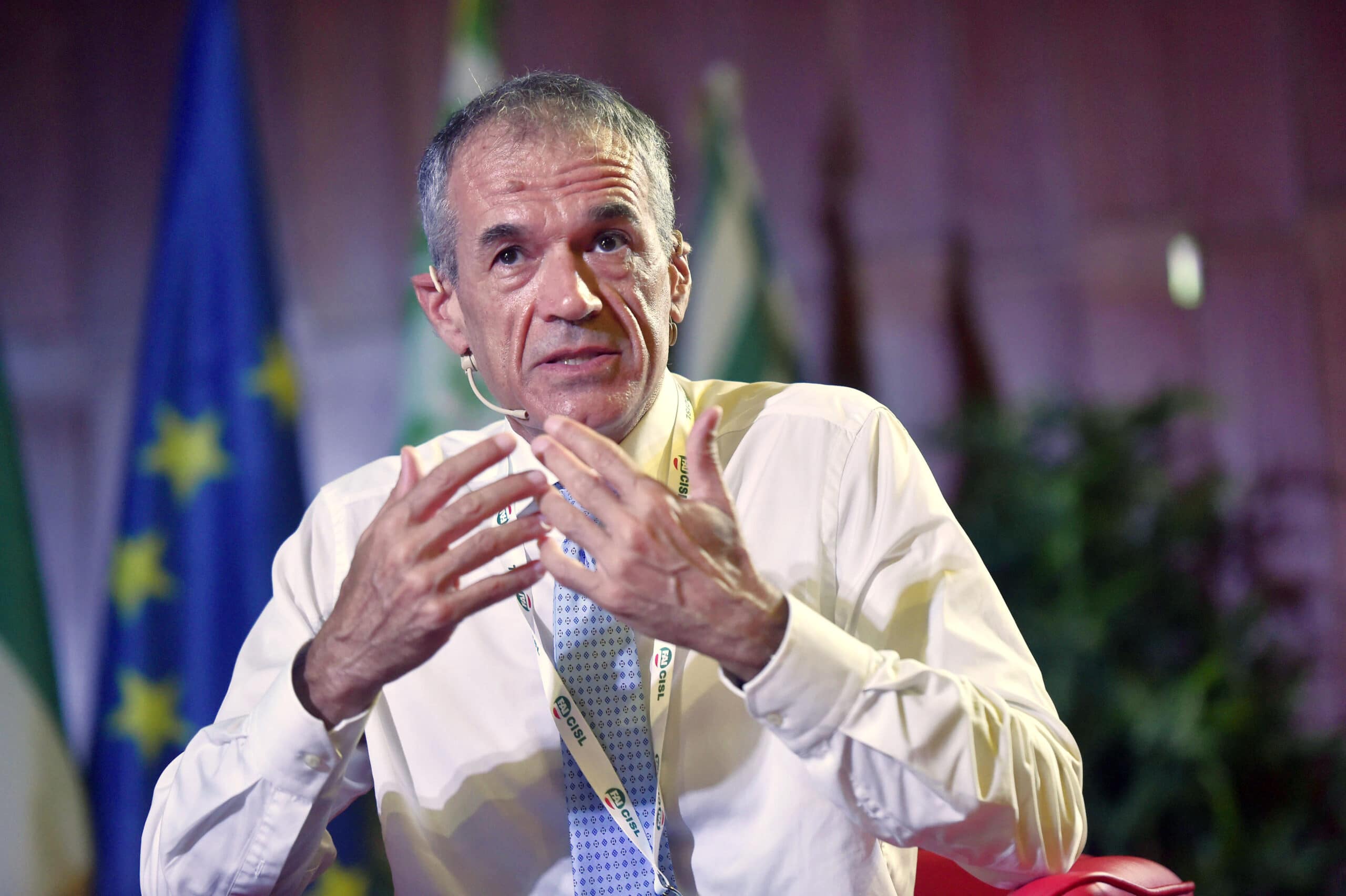Mr Cottarelli is among the most respected Italian economists. He came very close to becoming PM in 2018, and his name has been floated for that position ever since the beginning of the Italian government crisis. He rejects that idea, but… (meanwhile, read his profile and his take on the current situation)
There are only a few Italian names wrapped up in the same economic clout as Carlo Cottarelli’s. Unsurprisingly, his name cropped up on the Italian papers recently, next to that of former ECB head Mario Draghi, as editors stare in their crystal balls to divine Italy’s next PM.
With the fall of the Italian government on Tuesday – and no clear solution in sight – some have been speculating that Italy’s best chance would be to form a new “technocratic” government, led by an economic guiding light, to ferry the country out of the pandemic-induced crisis.
Rome is set to receive roughly 30% of the European recovery resources, most of which fall under the so-called Next Generation EU funds. Italy’s slice amounts to a staggering €209 billion, obtainable by presenting Brussels with a properly fleshed out recovery plan by April. And there lies the crux.
“All Southern European countries have already submitted a draft of the[ir] recovery plan to the European Commission, except for Italy,” Mr Cottarelli told Formiche.net; “that, as a matter of fact, is a problem.”
The leading economist stressed that too much time had been lost. Yes, he conceded, the biggest fund share may require more time to write the biggest plan, but time is still running out. Especially, we might add, during a government crisis.
Now, said Mr Cottarelli, the aim is to submit the final draft by April. There are “elements of the European recommendations that have not been tackled,” he added; “I expect that a balance will be struck by the end, and that a deal with the EU will improve the plan, making it more effective with regards to those sectors.”
“The EU is not worried about Italy’s recovery plan,” he added, “[..] but I must admit that I am worried for Italy.” He cited the lack of a recovery governance body – one of the reasons for the government’s collapse – and remarked that it isn’t all about the money, that Italy needed reforms to revive the economy, and that the European funds “are just an instrument to achieve what we haven’t been able to, up until now.”
When interviewed by the Italian daily La Stampa about the government crisis (the interview was published on Wednesday), Mr Cottarelli said that “whoever hopes in a government led by myself will be disappointed.”
The economist added that the most logical way forward was to stick with PM Giuseppe Conte and a parliamentary majority like that which had just collapsed. That, or the elections.
However, many doubt that Mr Conte will be able to command a solid majority – and many, including in Parliament, will do anything to avoid elections. The spectre of a technocratic government – the “third way” – is still lingering above Rome, and several eyes are still fixed on Mr Cottarelli, despite his words.
Profile
Born in 1954 in Cremona, Carlo Cottarelli graduated in Economics and Banking at the Siena University and went on to obtain his master’s degree at the London School of Economics. He then worked in the research department of the Italian National Bank before moving to the financial division of the energy behemoth ENI.
His stint at ENI ended after just a year, in 1988, when he moved to Washington and began working for the International Monetary Fund (IMF). He remained there for 25 years and took on several managerial roles, overseeing the IMF’s activities in over a dozen countries in that period.
Mr Cottarelli’s wealth of experience was the reason he was called by the Italian PM in 2013, Enrico Letta, to be appointed Extraordinary Commissioner for the Spending Review – a fancy title that entailed him overseeing an extraordinary amount of public expenses, and eventually earned him the nickname of “Mr Spending Review.”
A year and an administration later, in 2014, he was appointed Executive Director of the International Monetary Fund Board by PM Matteo Renzi – the same person who de facto ignited the current Italian governing crisis.
Since 2017, Mr Cottarelli directs the Observatory of Italian Public Finances at the Catholic University in Milan. He also teaches Fiscal Macroeconomics at Italy’s top business school, Bocconi University, also in Milan.
Matter of fact, when President Sergio Mattarella called him to ask him if he could form the Italian government right after the 2018 elections, he was correcting his students’ assignments. That call, he said, came unexpectedly.
Mr Cottarelli made his way to Rome and accepted the job with reserve, because it seemed as the new forces in Parliament could not find enough common ground. He was tasked with forming and guiding a caretaker technocratic government until the parties came up with a solution.
They did, two days later, and he immediately renounced his post. That moment led to the creation of the Five Star Movement-League government, which has been described as anti-immigration, populist, and bent on a welfare approach.
That government was led by Mr Conte and lasted a little more than one year, when the League’s leader withdrew his support and attempted to force elections. In response, the 5SM formed another government with the centre-left Democratic Party, still led by Mr Conte. That’s the government that has just fallen.








